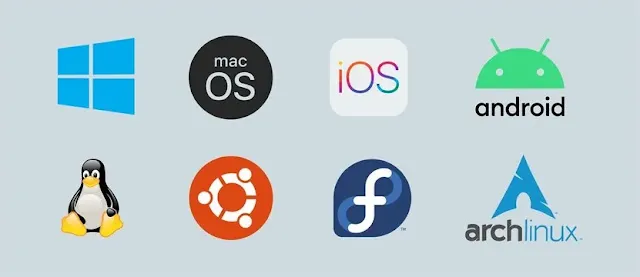Analyze and Contrast Different Operating Systems: A Comprehensive Guide
Operating systems are the backbone of any computer's functionality, playing a vital role in managing hardware and software resources. In this guide, we'll delve into the most widely used operating systems, analyzing and contrasting their features. We'll also highlight the risks associated with using outdated operating systems, emphasizing the importance of staying current.
Standard Computer Operating Systems
For those working in security or IT, familiarity with Windows, macOS®, Linux, ChromeOS, Android, and iOS is essential. These are the most common operating systems used across various platforms, each with its own unique characteristics and vulnerabilities.
Windows and macOS: A Comparison
Two of the most popular operating systems in both homes and businesses are Windows and macOS. Microsoft introduced Windows in 1985, while Apple launched macOS in 1984.
Windows: A closed-source operating system, meaning its source code is proprietary and not available to the public. This closed nature can sometimes limit customization but often enhances security through controlled updates and patches.
macOS: A partially open-source operating system. While certain components, like the macOS kernel, are open-source, much of the system remains closed-source. This combination allows for a blend of community-driven development and secure proprietary software.
Linux: The Open-Source Powerhouse
Linux, launched in 1991, is a fully open-source operating system. This means anyone can access and modify its source code. The open-source nature of Linux fosters a collaborative environment where developers contribute to the system's growth and security.
In the security industry, Linux is particularly important due to the availability of distributions specifically designed for security purposes. As you advance in your career, understanding Linux will be crucial, especially for roles that require deep technical knowledge.
ChromeOS: The Educational Favorite
Released in 2011, ChromeOS is another example of a largely open-source operating system. It is derived from Chromium OS, which is entirely open-source. ChromeOS has found its niche in the educational sector, where its simplicity and cloud-based approach make it an ideal choice for students and educators.
Android and iOS: Dominating Mobile Operating Systems
Android and iOS are the leading operating systems for mobile devices such as smartphones, tablets, and smartwatches.
Android: Launched in 2008, it is an open-source OS, allowing for extensive customization and development by third-party developers.
iOS: Introduced in 2007, it is partially open-source, with some components accessible to developers while others remain proprietary to Apple. This balance helps maintain a high level of security and user experience.
Operating Systems and Vulnerabilities
Every operating system is susceptible to security risks. Protecting an operating system requires keeping it and its components up to date. Regular updates help patch vulnerabilities and reduce the risk of attacks.
Legacy Operating Systems: A Risky Business
A legacy operating system refers to an outdated OS that is still in use. Some organizations continue to rely on these old systems because their critical software may not be compatible with modern operating systems. This is particularly common in industries that use equipment with embedded software.
However, legacy operating systems are often more vulnerable to security threats because they no longer receive updates or support. This lack of updates makes them prime targets for new and evolving cyber threats.
Other Vulnerabilities to Consider
Even the most up-to-date operating systems can still be vulnerable to attacks. Security analysts should be aware of known vulnerabilities and stay informed through various resources:
Microsoft Security Response Center (MSRC): Provides a comprehensive list of known vulnerabilities affecting Microsoft products, including Windows.
Apple Security Updates: Offers detailed information on security updates for Apple’s operating systems, including macOS and iOS.
Common Vulnerabilities and Exposures (CVE) Report for Ubuntu: Lists known vulnerabilities for Ubuntu, a popular Linux distribution.
Google Cloud Security Bulletin: Contains information about vulnerabilities affecting Google Cloud services, including those running on ChromeOS and Android.
Keeping an operating system up to date is crucial for maintaining its security. However, since it's not always feasible to update every system immediately, security analysts must be knowledgeable about legacy operating systems and the unique risks they pose.
Key Takeaways
- Operating systems like Windows, macOS, Linux, ChromeOS, Android, and iOS are widely used across different platforms.
- Security analysts need to be aware of the vulnerabilities that affect each of these operating systems.
- Understanding the risks associated with legacy operating systems is essential for maintaining security in environments where outdated software is still in use.

